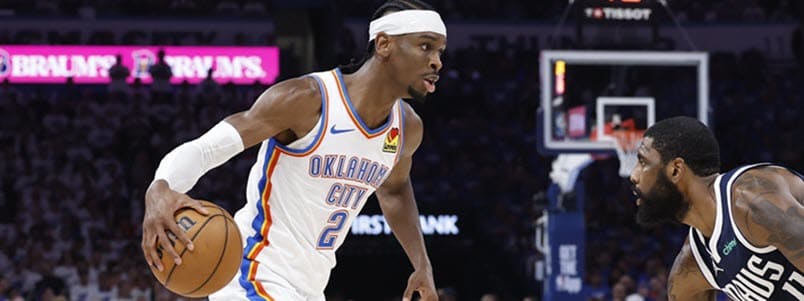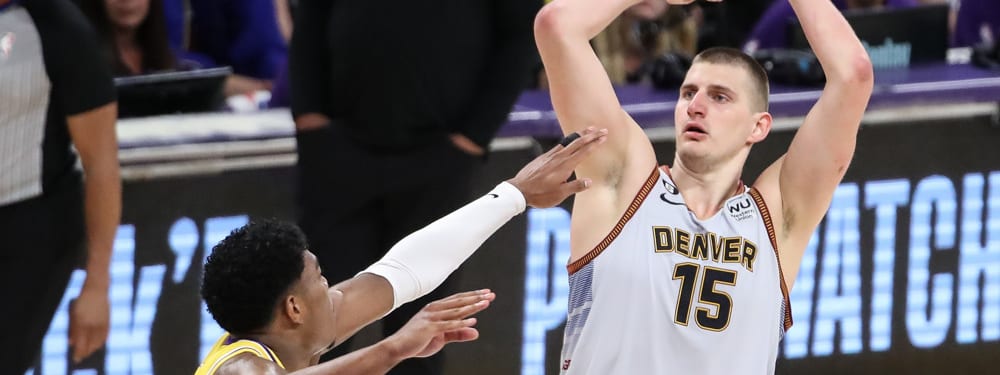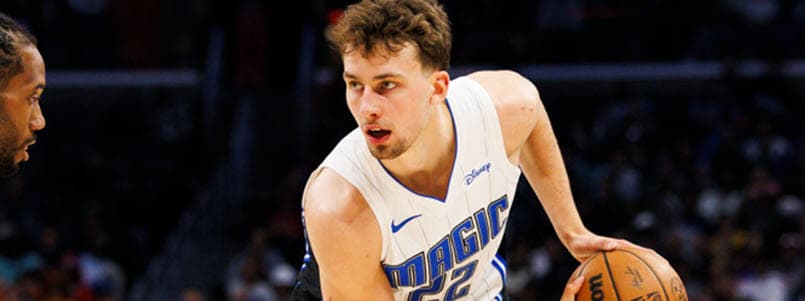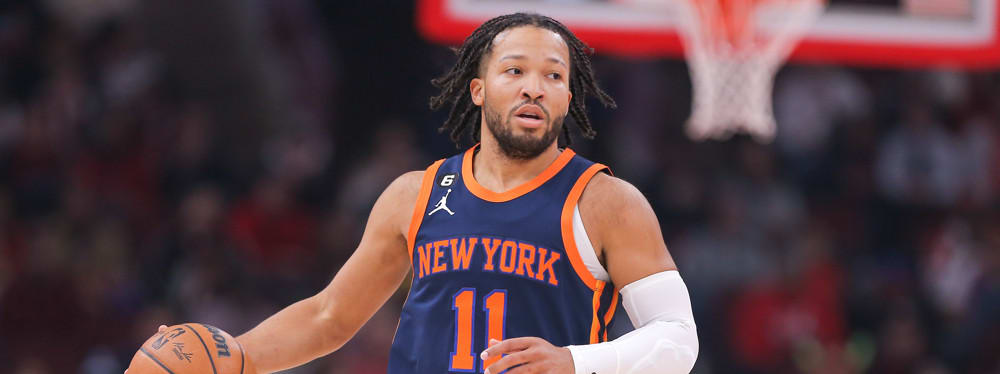Recent RotoWire Articles Featuring Seth Curry
See More
Curry has played for eight teams in his nine-year career, but he always ends up back in Dallas somehow. This is his third stint with the Mavericks, playing for them in 2016-17 and 2019-20. Getting out of Brooklyn is what's really important for Curry because he just had one of the worst years of his career. The coaching staff soured on Curry after a career year in the 2021-22 season, where he averaged 15.0 points, 3.1 rebounds, 3.6 assists, 0.7 steals and 2.5 threes on 48.7 percent from the field, 87.2 percent from the free-throw line and 42.2 percent from long range. Those averages made him a must-roster player, but it's hard to understand what we're looking at after that nightmarish 2022-23 season. Dallas' rotation is much less crowded than Brooklyn's was, but there won't be many opportunities with Kyrie Irving and Luka Doncic swallowing up so many touches. He should be their go-to bench scorer on this lackluster roster and could stumble into a bigger role if one of those superstars goes down. He's unlikely to be drafted in most formats, but he's definitely worth keeping an eye on to see what sort of role he plays for the Mavericks.
With Ben Simmons missing all of last season, Curry stepped into a more prominent role for the 76ers before they were both eventually dealt to the Nets for James Harden. Curry set new career highs in points (15.0), assists (3.6), rebounds (3.1) and made threes (2.5) per game in his career-high 33.4 minutes. He also maintained excellent efficiency while doing so, slashing 49/42/87. He held a similar role while in Brooklyn for 19 games. Heading into this season, the Nets are the most uncertain team in the NBA. Kevin Durant and Kyrie Irving are threats to be traded at any given time, which could shake up everyone else's role. Still, for the time being, both players remain on the roster, as does Simmons. Curry will have a hard time getting touches outside of spot-up three-point opportunities, and he'll also be competing against Joe Harris, Cam Thomas and Patty Mills for those chances. As a result, it will be challenging for Curry to replicate his great 2021-22 campaign. Fantasy managers can consider him at the end of drafts, but since his upside is so low, he's better suited for deeper leagues.
Curry has changed teams every season of his career, but he may have finally found a home in Philadelphia. The sharpshooter is coming off his best season, ranking 150th in fantasy (per game) with averages of 12.5 points, 2.7 assists, 2.4 rebounds and most notably, 2.2 threes in 28.7 minutes. Last season marked Curry's fourth season inside the top 6 for three-point percentage (45.0), and he holds the best three-point percentage of all active players (44.4). While he doesn't get the volume of his brother, Steph, Curry continues to chart his own path as one of the most dangerous players in NBA history to leave open from deep. His presence is crucial for spacing the floor for Joel Embiid, and even though Curry takes fewer than 10 shots per game, he's helping the team with his gravity. His role should remain similar in 2021-22. He doesn't need to be drafted in standard leagues, but fantasy managers in deep formats should consider Curry with a late pick.
The 2019-20 campaign was one of the best of Curry's six-year career. He primarily appeared off the bench for the Mavericks, though he did start 25 games. Regardless, he played a significant role in most games, receiving 24.6 minutes per game, the second-high total of his career, up significantly from his 18.9 minutes the previous season. He saw his numbers improve across the board, with points per game jumping from 7.9 to 12.4 and his assists increasing from 0.9 to 1.9. On a per-36-minute basis, his 18.1 points represented a career high. His 45.2 percent mark from beyond the arc was also a career best, though it's hardly an unsustainable mark for the sharpshooter, who's shot 44.3 percent from three over the course of his career. That's by far his most noteworthy skill, and his game is unlikely to change significantly in his age-30 season, but being that good at an important part of the game should keep him in a fairly important role this season. He'll be on a new team in 2020-21, as the Mavericks dealt him to the 76ers in exchange for Josh Richardson. With the 76ers, Curry should see a similar, if not increased, workload, with a legitimate chance to be a full-time starter on the wing next to Danny Green. If Curry can see closer to 30 minutes per game, it's possible he trends near being a top-100 player. As a result, he makes for a possible late-round flier in most fantasy drafts.
Curry signed a four-year, $32 million deal to join his former team, the Dallas Mavericks, after just one year with Portland. He bounced back nicely in 2018-19 after missing the entire 2017-18 season with a broken tibia. His exceptional three-point shooting was not hampered by his time off, as he matched a career-high mark of 45.0 percent from deep, shooting at least 42.0 percent from three for the third straight season. He's a three-point specialist of the highest order who figures to be most useful in that category for the coming season. He played just 18.9 minutes per game in 2018-19, primarily off the bench, though he could be in line for a larger role in Dallas. Curry had his best statistical season as a pro in his lone season with the Mavericks in 2016-17, averaging 12.8 points, 2.7 assists, 2.6 rebounds and 2.0 threes in 28.9 minutes per contest. Despite his limited role last season, Curry's per-36 averages were almost identical to those of his previous season with Dallas.
Missing the entire 2017-18 season due to a left tibia injury that ultimately required surgery resulted in Curry settling for a modest two-year, $5.6 million contract this offseason. Those figures could ultimately render him one of the steals of the offseason on a dollar-for-dollar basis, that is, if Curry can return to the level of play he exhibited with the Mavericks during the 2016-17 campaign. The 27-year-old averaged 12.8 points (on 48.1 percent shooting, including an outstanding 42.5 percent from three-point range), 2.7 assists, 2.6 rebounds and 1.1 steals over 70 games (42 starts) during that career-best season, putting together a few performances reminiscent of his decorated older brother along the way. If he’s back at full health, Curry’s outside shooting prowess could provide the Trail Blazers’ with a lethal backcourt trio and give the second unit some badly needed scoring punch. For the moment, given the relative uncertainty regarding his conditioning and burst after missing a full year, Curry’s Fantasy stock remains up in the air, with preseason games likely to go a long way toward offering further clarity on his status.
Curry was one of the few nice surprises for the Mavericks during the 2016-17 campaign after signing just a two-year, $5.9 million contract in the offseason. With injuries piling up in the backcourt to guys like Deron Williams and J.J. Barea, Curry ended up getting a ton of run and even started 42 of the 70 contests he played in. He nearly doubled his minutes with 29.0 per game compared to just 15.7 a year prior with the Kings. That resulted in career highs across the board of 12.8 points, 2.6 rebounds, 2.7 assists, 1.1 steals and 2.0 three-pointers. He shot a blistering 42.5 percent from the three-point line, which will likely be one of his main contributions during the upcoming campaign. The Mavericks drafted point guard Dennis Smith with the ninth overall pick in the 2017 NBA Draft and he's fully expected to jump in as a starter immediately. That sends Curry back into a bench role where he'll have to fight off Yogi Ferrell and J.J. Barea for playing time. Curry's breakout campaign should still lock him as a member of coach Rick Carlisle's regular rotation, but with the Mavericks likely opting to give their prized rookie Smith as much run as possible, it's going to come with a significant decrease to Curry's role. Curry will still come off the bench as an all-around scoring threat, especially as a floor-spacing three-point shooter, though he likely won't come close to the 29.0 minutes he averaged in 2016-17.
A journeyman for his first two NBA seasons, Curry made brief cameos with the Grizzlies, Cavaliers and Suns while spending the majority of his time in the D-League. He was finally given a chance by the Kings last season, appearing in a career-high 44 games and making nine starts near the end of the season. Curry's role was inconsistent for much of the year, so it's difficult to take anything away from his season-long averages of 6.8 points, 1.5 assists and 1.4 rebounds per game. But over the Kings' final 11 games, Curry averaged 29.7 minutes, putting up 15.2 points, 3.8 assists and 2.7 rebounds while shooting 46.8 percent from the field and an even more impressive 48.4 percent from three-point range. The late surge was enough to impress the Mavs, who signed Curry as a free agent this offseason to provide depth at both guard spots. Curry will play primarily off the ball, but he has experience at point guard and turned in a 15-assist game against the Suns last season, showcasing the playmaking ability that was often on display at Duke. While the 26-year-old is an intriguing player to keep an eye on, the Mavs are stocked with steady, if not spectacular, veteran guards, which may prevent Curry from playing enough minutes to achieve fantasy relevancy in most single-season formats.
Curry spent his first two seasons being shuttled back and forth between Cleveland, Memphis, Phoenix, and their D-League affiliates, never earning more than a seven minutes per game in any of his three stints in the NBA. He was able to turn in an All-Summer League Team performance, averaging 24.3 points per game and demonstrating an inside-outside scoring ability and confidence that he had yet to show in his first two seasons. Now armed with a two-year, $2 million contract from Kings, he has the opportunity to step into a potential rotation role behind Rajon Rondo and Darren Collison. If Curry can carry his scoring touch and ball handling skills over into November, he should have a solid chance to be a rotational asset for Sacramento this season, but it's unlikely he earns enough minutes to be used in anything but deep leagues.
Curry, brother of starting point guard Stephen Curry, is an undrafted free agent working on a non-guaranteed contract. He played both guard positions during his college career, though shooting guard is his more natural spot. Curry can dial it up from long distance. He made 44 percent of his three-pointers at Duke last year, but he doesn't have a ton of athleticism. If he's going to make it in the NBA, it will be as a three-point marksman.













